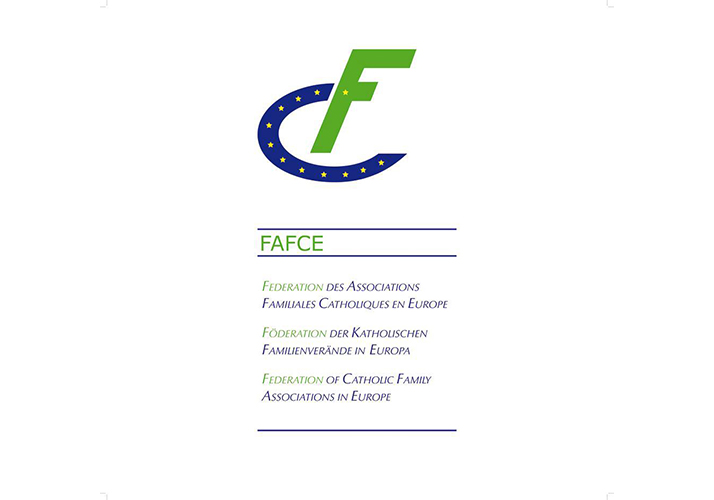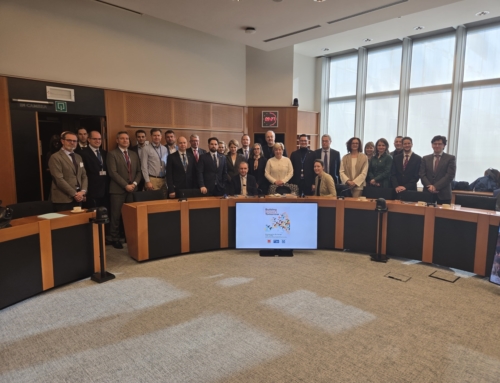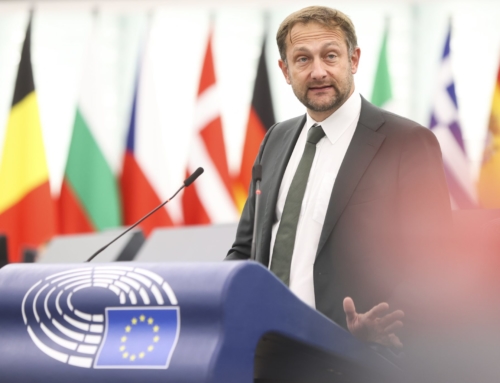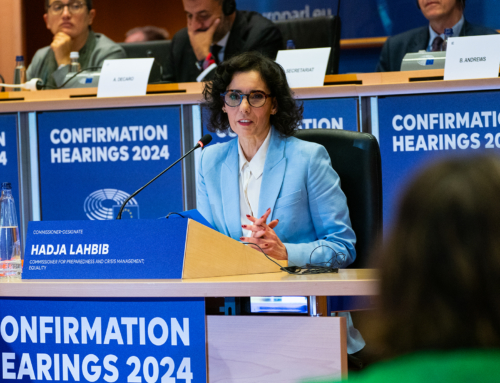On Tuesday 19th February, Femina Europa organized a conference on “Challenges of pregnancy and motherhood in the workplace” hosted by MEP Anna Zaborska (EPP, Slovakia) at the European Parliament.
Marine de Poncins (Founder of the French Association “Les Prestigieuses”) reported on harassment related to maternity or pregnancy encountered by women at the workplace. Her organisation is aiming at finding ways of conciliating work and pregnancy. She explained the tendency in Europe to connect maternity with feelings of worthlessness, loss of social status, exclusion for pregnant women. An explanation to these tendencies is the so-called liberation of woman seeking for woman’s autonomy, while maternity is seen as bondage. Now women should perform at work, and maternity has to fit in this framework. There is a current “Defeminization” of the feminine, letting space for hostile behaviours toward children. Nevertheless, “Les Prestigieuses” seeks to share a positive message on maternity, as it helps grow in mankind.
Jacques Bichot, French economist, introduced to the notions of investment in human capital. There should be a budget dedicated to women’s maternity, as women are co-investors in human capital at national and European level. Women would be more able to work and more performant. Maternity grants should be given to enterprises each time one woman is in a situation of pregnancy. As such, she would not be perceived as heavyweight, but as a source of income. This proposition would rather lead to more economic efficiency. MEP Anna Zaborska underlined that household work and care activities undergone by women did not exist as long as they are not taken into consideration in statistics.
Esther Pivet (author and whistle-blower on educational topics) shared insights on pregnancy and maternity in the French educational system. The French High Council for Equality used different means such as one project entitled: “Eliminating gendered stereotypes and deconstruct social roles”. However, the scientific knowledge teaches us about sexual differences. All cells of our body are gendered. Hormonal systems are also linked to the biological sex. Furthermore, there is a number of policies creating a tension between feminine and masculine identity, and aiming at inverting the nature, the masculine with the feminine; but nature is innate, and culture is here to develop potentials that are innate to each human being.
Different resolutions have already been issued by the European Parliament this last fifteen years on the subject, and need to be recalled and implemented further at national level. FAFCE also promoted a Resolution of the Parliamentary Assembly of the Council of Europe (8 June 2018), which clearly states “that maternity and motherhood must be supported and protected within the workplace and must not be treated as though they were impediments for a woman’s career”. The same Resolution also asks to “consider recognising unremunerated household and caregiving work at the policy level and in the pension system, so as to guarantee an adequate treatment to women and men choosing caring responsibilities”. There is a need of spreading this documents and to implement them at the national level: the conference organised by Femina Europa offered a valid contribution in this sense.







